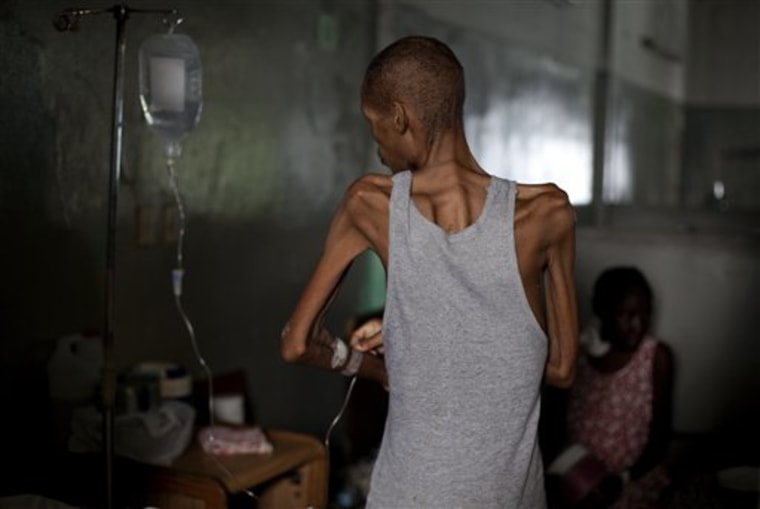It was a simple problem with a novel solution.
Doctors, nurses and technicians at Haiti's most important hospital had not been paid since before the earthquake — causing strikes and staffing shortages, and turning the facility into a dangerously inefficient, rat-infested mess. So in March, the American Red Cross volunteered to donate a small part of the $468 million it raised for earthquake relief toward supporting their salaries.
But the $3.8 million promised to the hospital is only now being delivered after four months of negotiations and red tape. While billions were spent on short-term projects, including medical assistance, doctors' strikes have continued and neglected patients at the city's main medical facility were left to suffer and die.
The breakdown at Haiti's State University Hospital is a prime example of the difficulty involved in trying to grind out a successful recovery. Six months after the magnitude-7 quake leveled much of the city and turned the hospital's courtyard into a grisly open-air morgue, promises to help Haiti become more self-sufficient have produced often frustrating results.
"The intent is there. The money is there. It's just that these are complicated issues," said Louise Ivers of Boston-based Partners in Health, which acted as an intermediary between the Red Cross and the hospital.
Sources involved with the project say the problem came down to clashing styles, needs and timetables. Haitian hospital administrators were trying to please government officials and satisfy extremely disgruntled employees while maintaining control of their institution.
The Red Cross, meanwhile, was trying something new: Disaster relief funds rarely go to fix up local institutions, especially ones run by the government. Doing so required heavy auditing and learning a new set of rules for operating.
Former U.S. President Bill Clinton, who is helping oversee reconstruction, said in a Saturday interview that his staff worked hard to see the agreement through — in large part because it might encourage other donors to support existing but foundering Haitian institutions.
"It took a while for it to get together, but we were working very intently on this," Clinton said by phone. "This is a little bit of a departure from what the Red Cross or other NGOs have done in the past. When you're trying to change all these cultures it's really something."
Clinton also noted the "enormous difficulty" plaguing rubble removal and construction of housing and said that overall international donors have given only 10 percent of the aid they promised. Clinton is co-chairman of the international commission overseeing $5.3 billion in promised reconstruction aid.
At the hospital, frustrations are running high. Unpaid staff have little incentive to work — even passion for helping those in need can only take them so far. Cleanliness, thoroughness and efficiency fall by the wayside.
For a hospital in rundown Port-au-Prince, where public sanitation is nonexistent, that means horror-show conditions. The operating rooms are not sterile, and doctors say vermin sometimes run through during surgery.
With much of the building damaged from the earthquake, patients endure long waits for short-staffed doctors in hot, flimsy tents that offer little protection from the elements.
